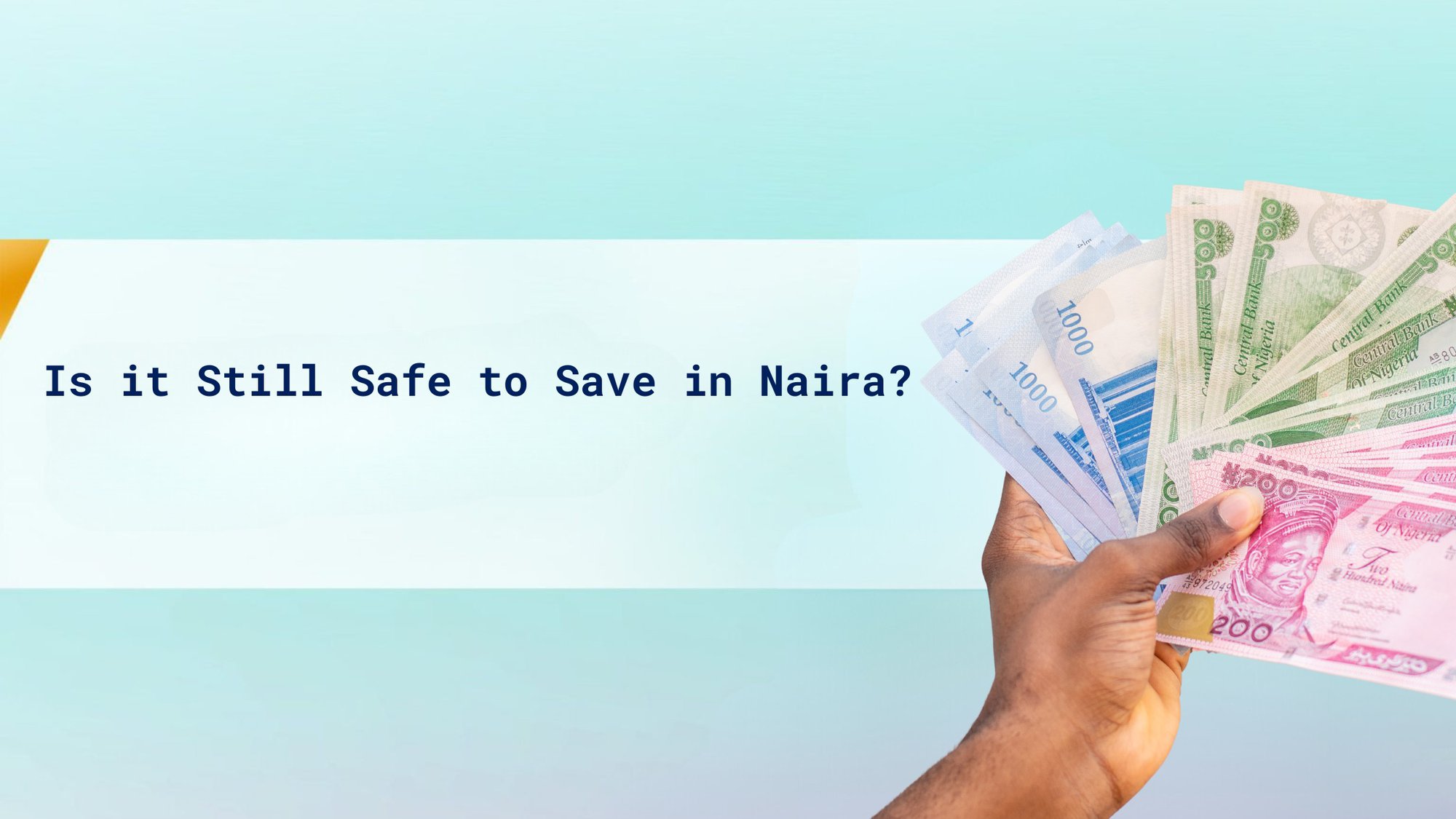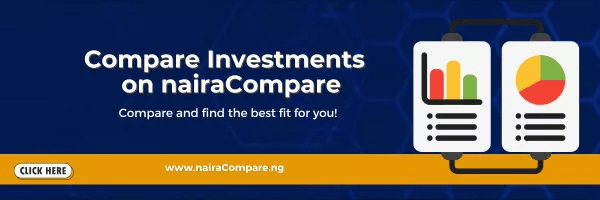
Is it Still Safe to Save in Naira?
Author Taiwo Temitope-Adesope
The volatility of the Nigerian Naira has been a long-standing concern for many Nigerians, particularly when it comes to the security of their savings. As the value of the Naira fluctuates against major currencies like the US Dollar, the purchasing power of Naira-denominated savings can erode rapidly. This situation has understandably raised questions about the wisdom of saving in the local currency, prompting many to explore alternative options.
With inflation rates often reaching double digits, the real value of Naira savings can diminish alarmingly fast. For instance, according to data from NairaCurrency.com, the inflation rate in Nigeria reached a staggering 21.47% in November 2022. This means that a Naira saved today would only be worth about 82% of its value a year later, significantly impacting long-term financial planning.
The Challenges of Saving in Naira
Inflation
One of the primary challenges of saving in Naira is the persistently high inflation rate in Nigeria. Inflation erodes the purchasing power of the currency, which means that the same amount of money can buy fewer goods and services over time. This phenomenon directly impacts the value of savings held in Naira.
For example, let's consider a scenario where you saved ₦1,000,000 in January 2020. With an average inflation rate of around 13% over the past three years, your savings would only be worth approximately ₦751,000 in real terms by January 2023. This erosion in purchasing power is a significant concern for individuals relying solely on Naira savings for their financial goals.
Devaluation
Another challenge faced by those saving in Naira is the currency's historical devaluation trend against major currencies like the US Dollar. Over the past decade, the Naira has consistently lost value against the Dollar, making imports more expensive and diminishing the purchasing power of Naira savings when it comes to acquiring foreign goods or services.
According to the parallel market, the exchange rate between the Naira and the US Dollar has steadily increased from around ₦150 to $1 in 2010 to over ₦1500 to $1 as of February 2024. This devaluation means that a Naira saved today would be worth significantly less in terms of its US Dollar equivalent in the future, reducing the real value of long-term Naira savings.
Alternatives to Saving in Naira
Dollar-Denominated Savings
Given the challenges posed by inflation and devaluation, many Nigerians have explored alternatives to saving solely in Naira. One popular option is to hold a portion of savings in stable foreign currencies, such as the US Dollar. This approach provides a hedge against the depreciation of the Naira and can help preserve the purchasing power of savings over time.
Opening and utilizing dollar-denominated accounts has become increasingly accessible in Nigeria. Several banks, including Guaranty Trust Bank and Access Bank, offer foreign currency accounts that allow customers to save and transact in US Dollars, Pounds Sterling, or other major currencies.
By diversifying savings across multiple currencies, individuals can mitigate the risk of losing purchasing power due to Naira devaluation. However, it's important to note that holding foreign currency accounts may come with additional fees and restrictions, so it's essential to evaluate the terms carefully.
Investments
Another alternative to traditional Naira savings is investing in assets that have the potential to outpace inflation. Real estate, stocks, and treasury bills are among the popular investment options in Nigeria.
Real estate investments, for instance, can provide a hedge against inflation as property values tend to appreciate over time. Similarly, investing in stocks of companies with strong fundamentals can generate returns that outpace the rate of inflation, albeit with higher risk.
Treasury bills, issued by the Central Bank of Nigeria, offer relatively low-risk investment opportunities with returns typically higher than traditional savings accounts. However, it's crucial to conduct thorough research and seek professional advice before venturing into any investment opportunity to ensure alignment with one's risk tolerance and financial goals.
Looking to invest in the Nigerian economy and don’t know where to start? Start by comparing on nairaCompare!
With nairaCompare, you can:
- Compare investments side-by-side: Find the best rates, returns, and maturities to match your needs.
- Filter and sort based on your preferences: You can filter based on your investment amount and risk level.
- Apply directly for your chosen investment: Skip the hassle and save valuable time.
- Don't settle for the first fund you find. Compare and invest smarter with nairaCompare!

Cryptocurrency (Stablecoins)
In recent years, cryptocurrencies have emerged as an alternative investment and savings option, particularly stablecoins pegged to the US Dollar. Stablecoins like Tether (USDT) and USD Coin (USDC) aim to maintain a stable value relative to the US Dollar, offering a digital alternative to holding physical dollars.
To buy and store stablecoins, individuals can open accounts with cryptocurrency exchanges like Binance, which facilitate the purchase and trading of various digital assets. However, it's important to exercise caution when dealing with cryptocurrencies, as the broader crypto market remains highly volatile and subject to significant price swings.
Strategies for Mitigating Risk
While exploring alternatives to saving solely in Naira can help mitigate the risks associated with inflation and devaluation, it's crucial to adopt a well-rounded approach to manage your personal finances effectively. Here are some strategies to consider:
Diversification
One of the most effective ways to manage risk is through diversification. Rather than putting all your savings into a single currency or investment vehicle, it's generally advisable to spread your assets across different options. This could involve allocating a portion of your savings to Naira, another portion to dollar-denominated accounts, and investing the remaining funds in assets like real estate, stocks, or treasury bills.
Diversification helps to reduce the overall risk by ensuring that your financial well-being is not entirely dependent on the performance of a single asset class or currency. It's a time-tested strategy that can help weather economic storms and market fluctuations more effectively.
Staying Informed
In today's rapidly changing economic landscape, staying informed about relevant news and indicators is paramount. Regularly monitoring inflation rates, exchange rates, interest rates, and other economic data can provide valuable insights to guide your financial decisions.
Reputable sources like Nairametrics and BusinessDay offer up-to-date information and analysis on various economic indicators in Nigeria. By staying abreast of these developments, you can make more informed choices about where and how to allocate your savings.
Seeking Professional Advice
While personal research and knowledge are invaluable, seeking professional advice from qualified financial advisors can provide an additional layer of guidance. Financial advisors have the expertise to evaluate your unique circumstances, risk tolerance, and goals, and can recommend tailored strategies to help you navigate the complexities of personal finance in Nigeria.
Many banks and independent financial advisory firms offer personalized services to help individuals develop comprehensive financial plans, including guidance on savings, investments, and risk management strategies. While professional advice may come at a cost, it can be a worthwhile investment for securing your financial future.
Conclusion
The challenges posed by inflation and devaluation have raised valid concerns about the wisdom of saving solely in Naira. While the local currency remains a viable option for short-term savings and daily transactions, its long-term stability as a store of value is questionable.
Exploring alternatives such as dollar-denominated savings, investments in assets like real estate and stocks, and even stablecoins can help mitigate the risks associated with Naira depreciation and erosion of purchasing power. However, it's crucial to understand that each alternative comes with its own set of risks and considerations.
Ultimately, the key to effective financial planning in Nigeria lies in adopting a diversified approach, staying informed about economic developments, and seeking professional guidance when necessary. By being proactive and making informed choices, individuals can better navigate the complexities of personal finance and secure their financial well-being in the face of economic uncertainties.
As the economic landscape continues to evolve, it's essential to remain vigilant and adapt your savings and investment strategies accordingly. With the right mindset and tools, it is possible to preserve and grow your wealth, even in the face of currency volatility and economic challenges.
About Author

Taiwo Temitope-Adesope
Taiwo is a passionate storyteller and strategist dedicated to empowering women and crafting compelling narratives. A First-Class graduate in Mass Communication from Covenant University, she specializes in writing, public relations, and digital marketing. As a Content Manager at Suretree, she drove a 50% increase in web traffic through SEO and boosted website engagement by 60% in just four months. Her leadership experience includes serving as Public Relations Officer for the Covenant University Student Council and contributing to impactful volunteer initiatives. With expertise in strategic thinking and business acumen, Taiwo continues to create stories that inspire confidence and imagination.
.png?width=1615&height=444&name=nairaCompare%20Christmas%20logo%20(PNG).png)





.jpg?width=352&name=What%20is%20a%20Good%20Interest%20Rate%20on%20a%20Savings%20Account%201%20(1).jpg)


